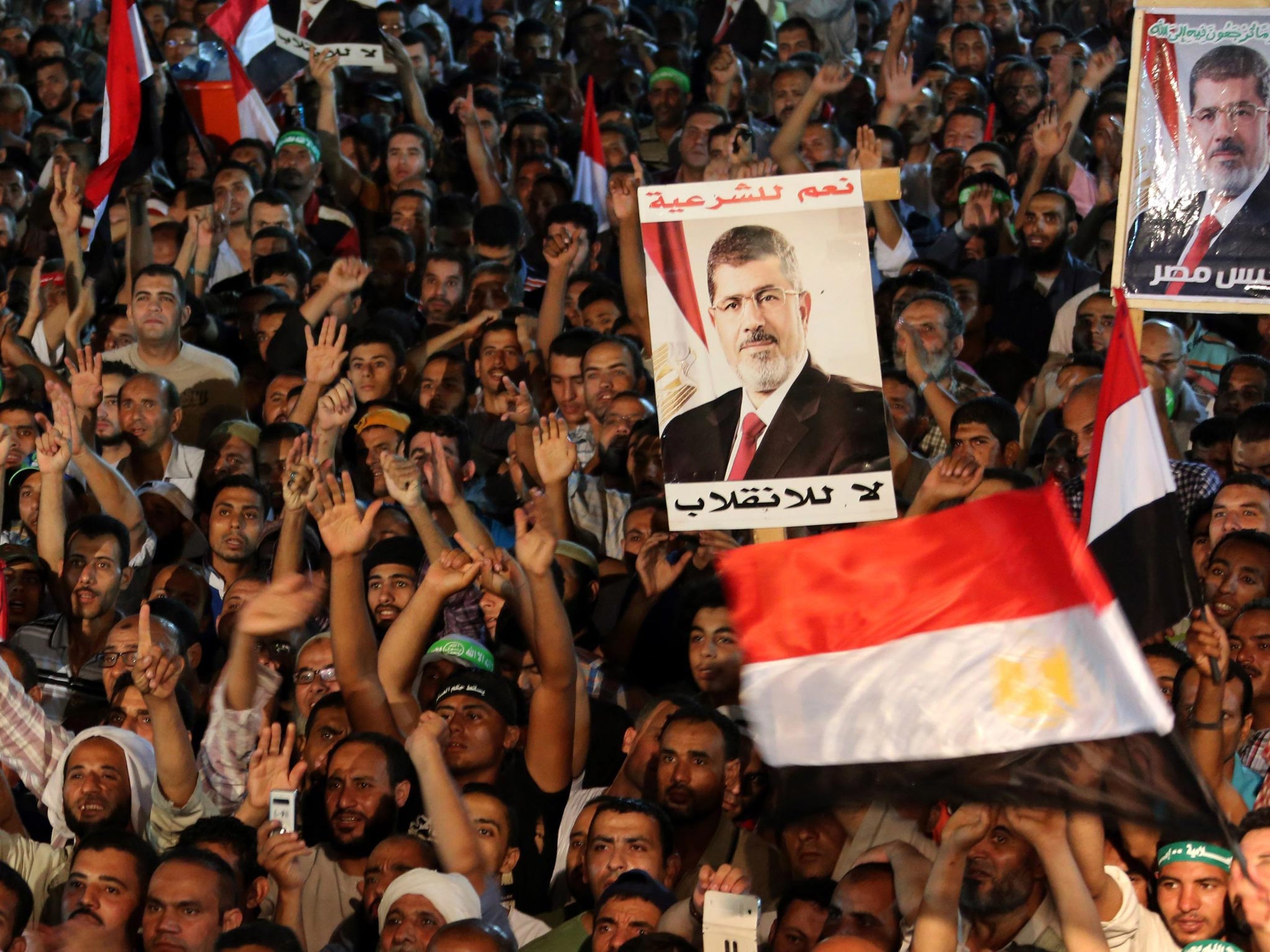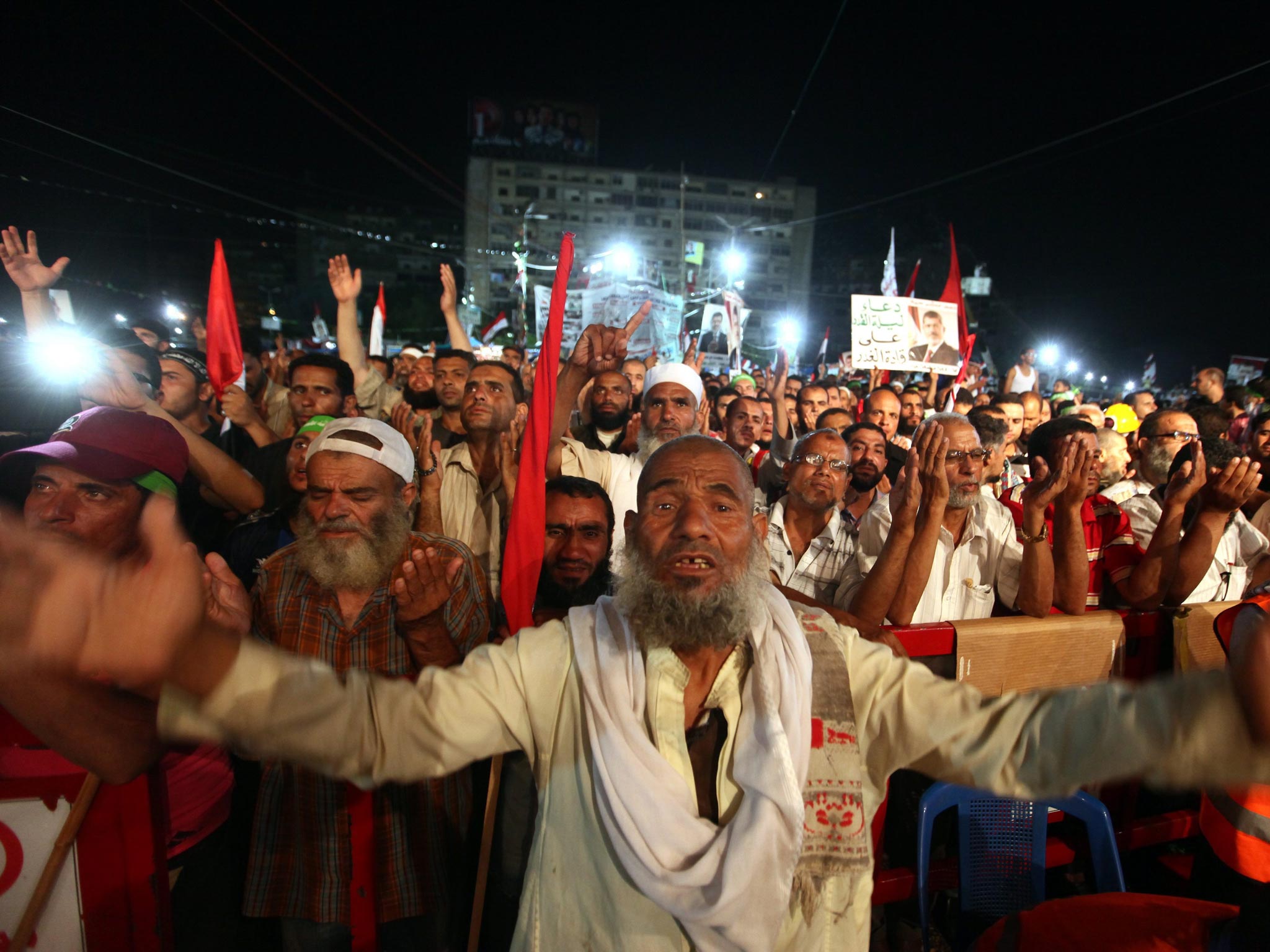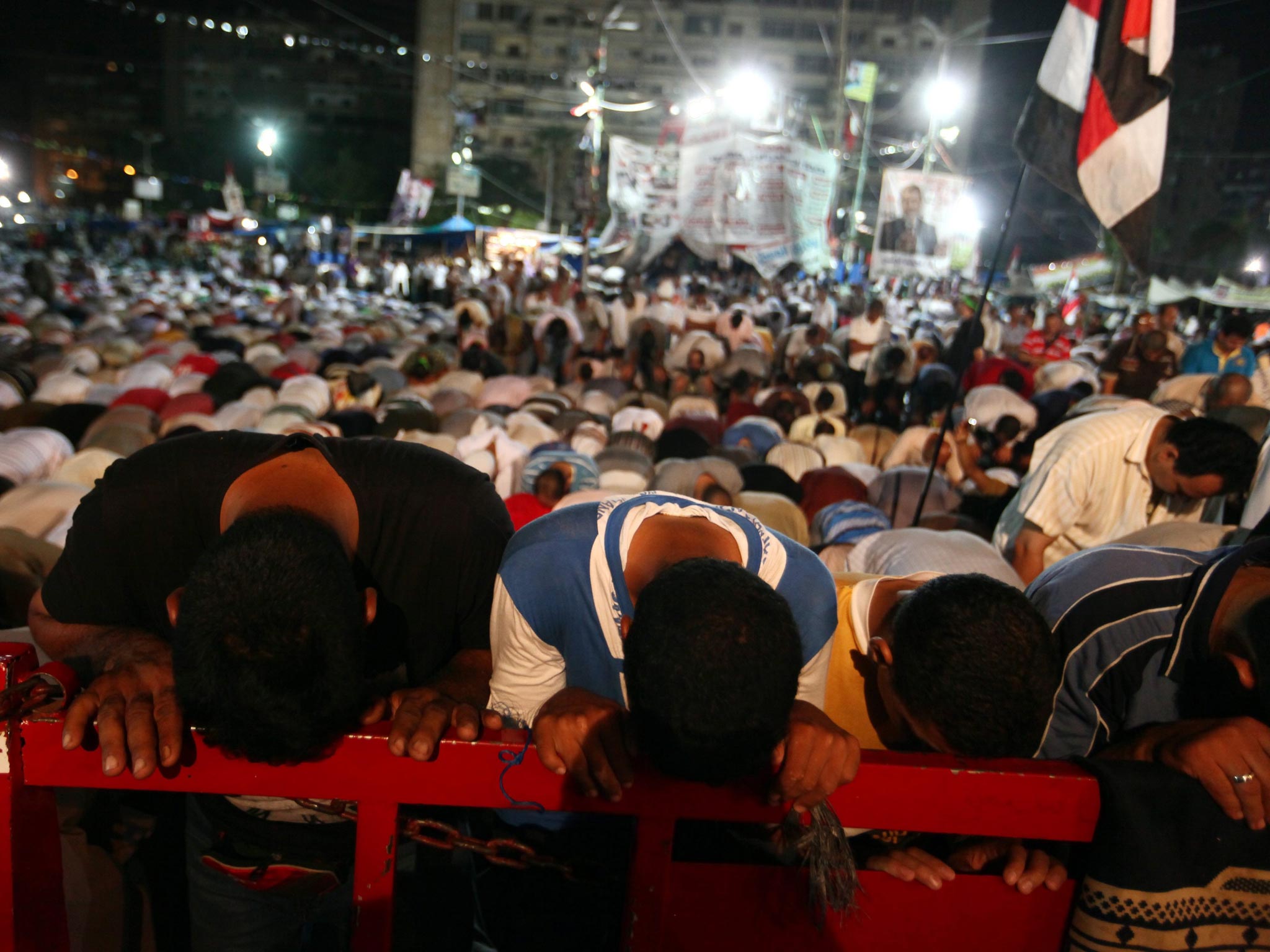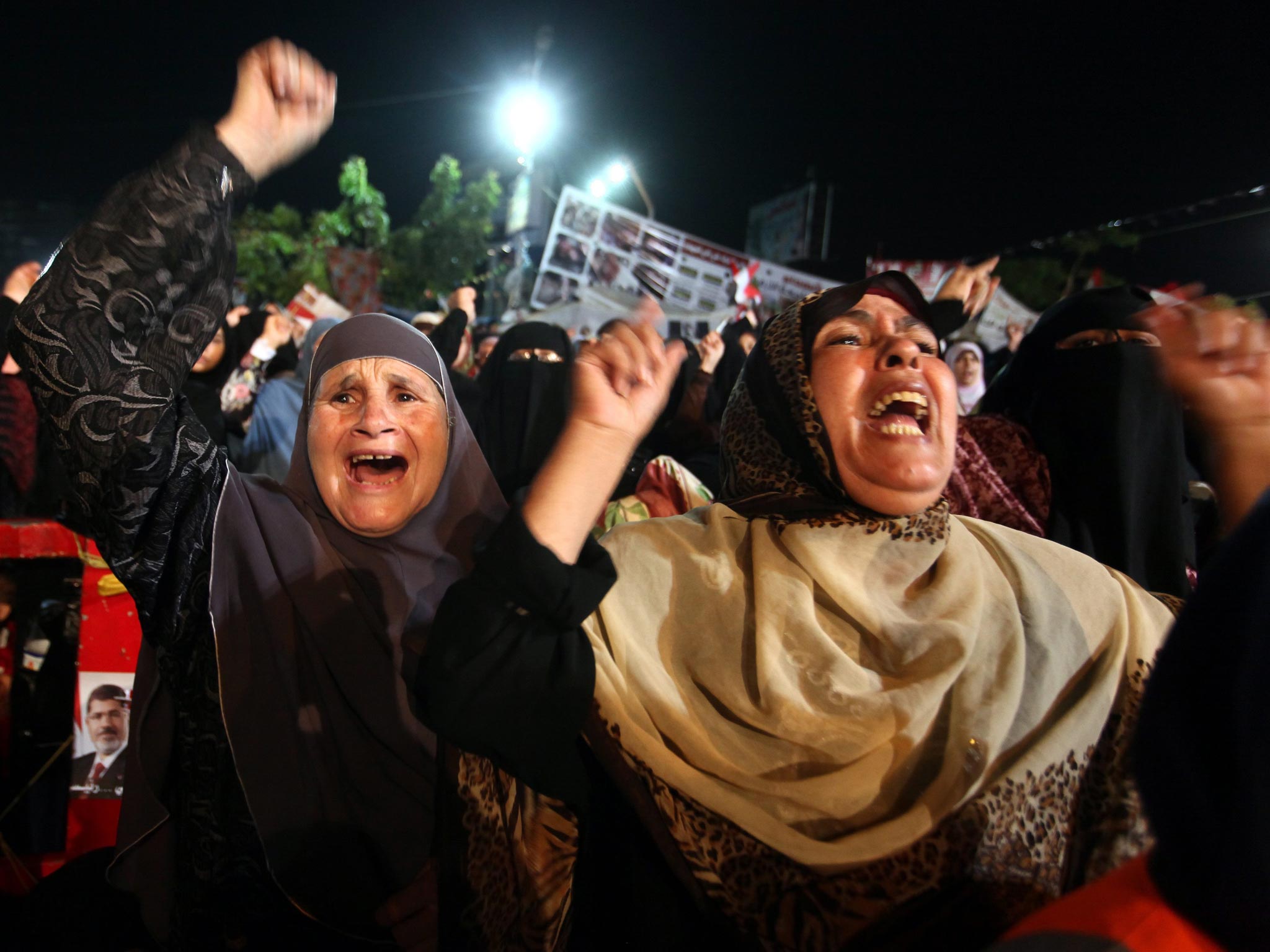Egypt: Mohamed Morsi's allies admit defeat and plot to fly him into exile
Deposed President could resign via a televised address and hand powers to interim Prime Minister
Your support helps us to tell the story
From reproductive rights to climate change to Big Tech, The Independent is on the ground when the story is developing. Whether it's investigating the financials of Elon Musk's pro-Trump PAC or producing our latest documentary, 'The A Word', which shines a light on the American women fighting for reproductive rights, we know how important it is to parse out the facts from the messaging.
At such a critical moment in US history, we need reporters on the ground. Your donation allows us to keep sending journalists to speak to both sides of the story.
The Independent is trusted by Americans across the entire political spectrum. And unlike many other quality news outlets, we choose not to lock Americans out of our reporting and analysis with paywalls. We believe quality journalism should be available to everyone, paid for by those who can afford it.
Your support makes all the difference.Islamist allies of Mohamed Morsi are secretly discussing a face-saving deal in which the toppled President could be released from detention and allowed to officially “resign” his position, according to a source close to crisis talks currently taking place between opposing sides in Cairo.
Options being considered include allowing Mr Morsi – who has not been seen in public since being detained by the military a month ago – to announce his resignation in a televised address and formerly hand his executive powers to interim Prime Minister Hazem al-Beblawi. Another possibility is that Mr Morsi could be released and flown into exile, according to the source. “We’re hoping to find a dignified exit for him,” he added.
The news comes as Egypt’s most senior security body warned that negotiations to solve the current crisis were not open-ended. The National Defence Council, a group which includes interim President Adly Mansour and army chief General Abdel Fattah al-Sisi, also said that a political settlement would not protect “law-breakers” from retribution – a thinly veiled threat to Islamists who have been accused by their opponents of inciting violence.
Over the weekend Gen al-Sisi used a newspaper interview to criticise both America and the EU for “turning their back” on Egyptians over the past month. “We really wonder,” he told The Washington Post, “[whether] the values of freedom and democracy [are] exclusively exercised in your countries, but other countries do not have the right to exercise the same values.”
His remarks were in response to a perception among many liberal Egyptians that the West does not comprehend the level of popular support which lay behind last month’s military coup. In a further escalation of tension, Egypt’s state news agency announced today that two senior members of the Muslim Brotherhood – Supreme Guide Mohamed Badie and his deputy Khairat al-Shater – would face trial later this month.
The development will anger Brotherhood negotiators who are seeking the release of detained Islamists as a kick-starter for any eventual settlement. Over the weekend they met with European and US envoys in a bid to hammer out a concessions package to end the standoff. If the negotiations break down, Western governments fear Egypt’s security services will try to clear the thousands of pro-Morsi protesters camped out in Cairo. Any operation would be a potential bloodbath.

Mr Morsi’s supporters are calling for the reinstatement of their ousted leader, a demand which remains the official position of the Muslim Brotherhood despite pro-Morsi negotiators saying in private that they recognise the political powers behind last month’s coup will never agree to his return.

“I think most people agree that it isn’t possible to bring Mr Morsi back,” said the source. “Anyway, how could he come back without the support of all the state institutions? With no judiciary, with no Interior Ministry or army?” An EU official, who asked to remain anonymous, told The Independent that Mr Morsi’s allies appeared willing to sacrifice the former President in return for a deal whereby arrested Brotherhood officials would be released from detention and allowed to return safely to their homes. Those officials would then be told to refrain from political activism.

“What we’re trying to do is to bring the moderates from both camps together,” said the official. “There seems to be a divide in both camps between moderates and hardliners.”

Looking over Egypt’s mutually hostile political camps, the divide often appears unbridgeable. Recent allegations of torture inside Muslim Brotherhood encampments – publicised in a Amnesty International report on Friday – have confirmed in the minds of many liberals that Islamists are not fit for power. Photographs of children being paraded in burial shrouds at a pro-Morsi protest have had a similar effect in convincing some Egyptians that the mass protests in eastern Cairo are little more than incubators of “terrorism”.
Join our commenting forum
Join thought-provoking conversations, follow other Independent readers and see their replies
Comments